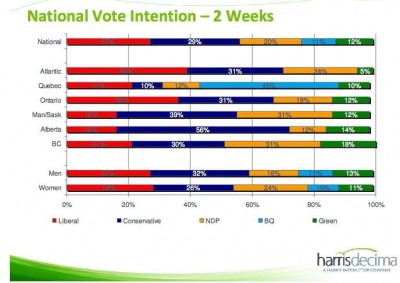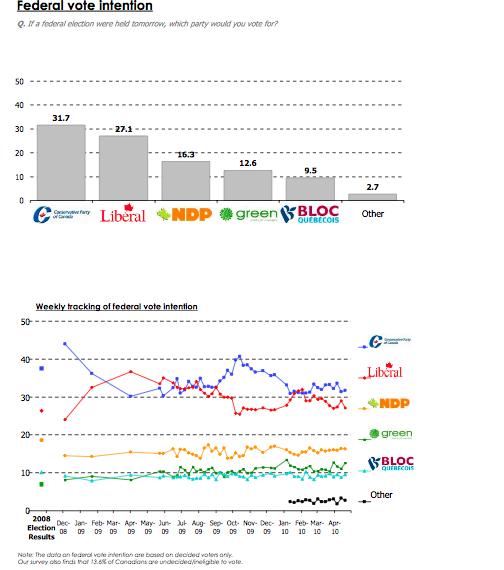
Notes from north of 49ºN.
In both Canada and the UK, voters are getting tired with the status quo and giving increasing support to third parties. We’ll see how it plays out on the UK next week with their elections, in light of the recent rise of the Liberal Democrats. In Canada, the latest Canadian Press/Harris Decima poll showed a surge for the New Democratic Party, at 20%, while the two major parties {Conservative Party and Liberal Party} have both fallen below 30%. BTW, here’s a post on “house effects” in Canadian polls, showing that the Harris Decima methodology tends to disfavour the Conservatives. I haven’t done a province-by-province analysis for Canada in a while, but I tend to watch Ontario closely, as it’s a bellwether region. The NDP is polling strong in Ontario at 19%. Apologies that some of the numbers on the following graphic are a bit fuzzy.

The NDP is polling at an all-time high in British Columbia at 31% and are in a tie with the Liberals and Conservatives with women voters. Nationally, the Greens have also held steady over the past year, dancing around the 10% mark.
Stephen Harper’s Conservative minority government is flailing in light of the Guergis/Jaffer affair and the recent kerfuffle over revealing documents relating to the Afghan detainee torture scandal.
Twitterversion:: Canadian Press/Harris poll shows spike for #NDP. Strong showing in BC and among women #ThickCulture
Song:: Julie Doiron-‘Consolation Prize’



